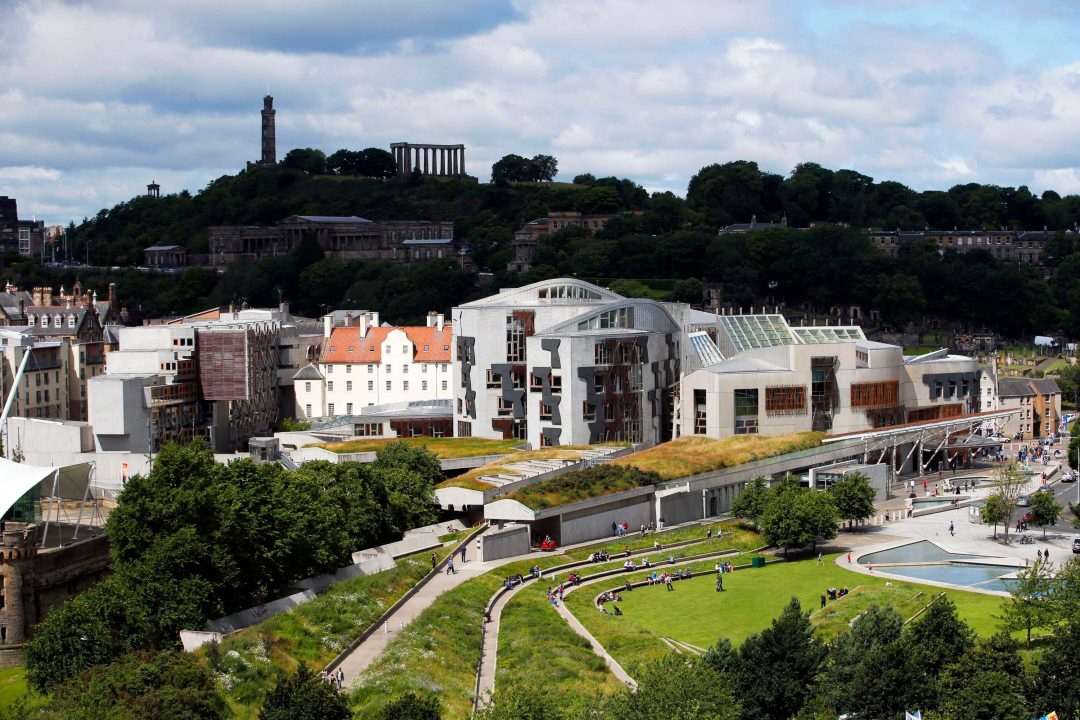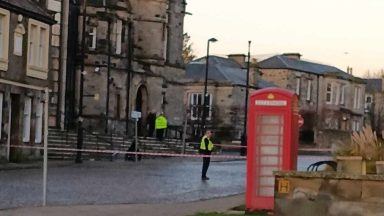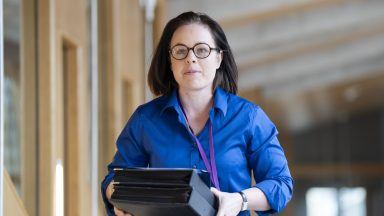The evaluation of Scotland’s first drug consumption room should not delay the opening of other facilities elsewhere in the country, MSPs have been told.
Lord Advocate Dorothy Bain KC announced earlier this month it would not be “in the public interest” to prosecute people using such a facility – the first of which is due to open in Glasgow.
The statement followed years of political wrangling between the Scottish and UK governments over the legality of such a facility.
But addressing a joint meeting of three Holyrood committees on Tuesday, Kirsten Horsburgh, the chief executive of the Scottish Drugs Forum, said the evaluation of the success of the Glasgow-based initiative should not delay more being opened in other parts of the country.
“We really welcome this news,” she said.
“The anxiety we have about it is we don’t want to see one facility introduced in Glasgow that prevents anywhere else in Scotland being opened until the service is evaluated.”
Ms Horsburgh also said the model introduced in Scotland’s biggest city should not necessarily be the same as those introduced elsewhere in the country.
She said: “It’s important when we are introducing these facilities that we have lots of different types.
“So we could have mobile units, we could have fixed site units, we could have just a room within an area that’s already providing needle exchange facilities.
“I would hope that we could not delay other areas by introducing this one.”
The £2.3m facility will be located in the city’s Hunter Street, in the same building as a current drug treatment facility.
But some MSPs have raised concerns about the impact on the local area, including on businesses.
Appearing before the committee, Scottish Recovery Consortium chairperson Tracey McFall stressed the need to work with local communities in creating services.
“We can’t do to communities, we have to take communities with us,” she said.
“There has been a number of examples over the years where there’s been residential rehabilitation service set up and there was local opposition but actually in some of those rehabilitation services the community actually engage.
“It’s about demystifying some of the stigma that’s attached with this work.
“We need proper consultation… we need to talk to the community, we need to acknowledge their fears and say ‘we get it, however there’s an evidence base across the world to say there’s not going to be that crime in that area, there’s not going to be an increase in drug use in that area’.”
She added: “My experience in developing services over the years is if you take the community with you, they get it.
“But don’t just drop it in to say ‘this is happening in your area’ and I don’t think Glasgow are planning that.”
Simon Rayner, the service lead for Aberdeen Alcohol and Drug Partnership, said the creation of such facilities would require winning “the hearts and minds” of communities, and ensuring they were properly staffed to avoid “incidents and spill-out behaviours”.
Scottish drugs minister Elena Whitham was due to appear before the joint committee meeting but was ill.
Follow STV News on WhatsApp
Scan the QR code on your mobile device for all the latest news from around the country


 PA Media
PA Media

























